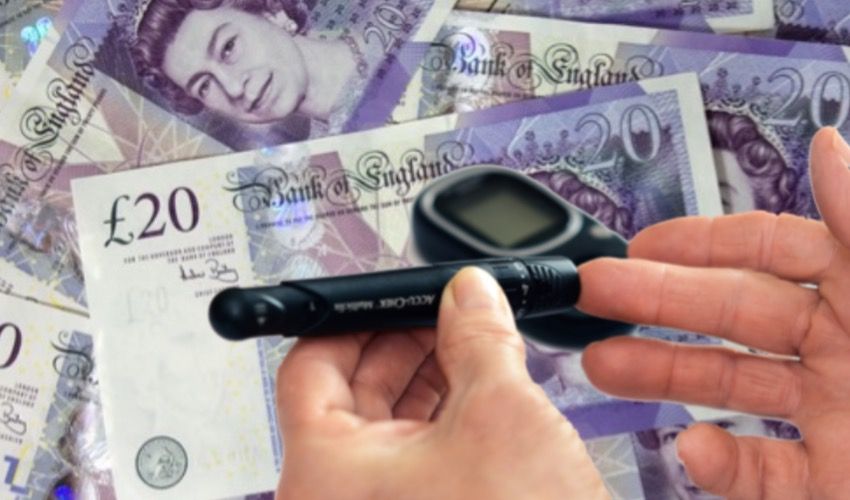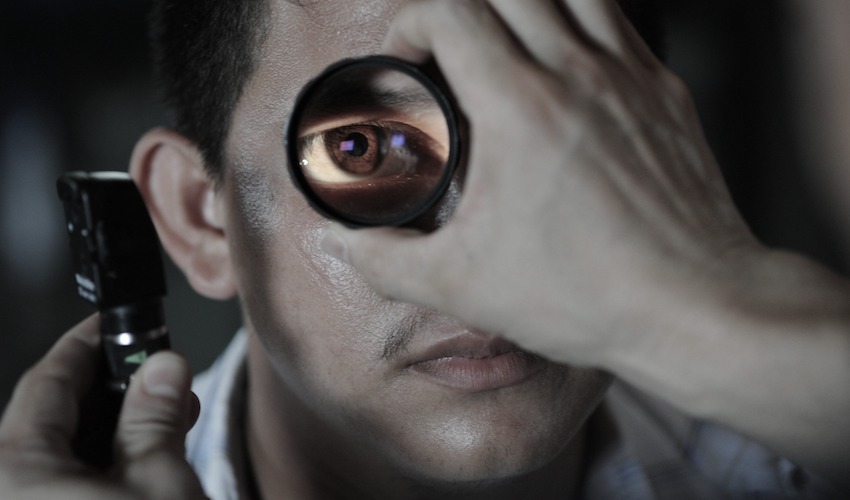

The Health Department is saving £120,000 a year thanks to local charity Diabetes Jersey, which has funded a specialist dietician and an office assistant, as well as picking up the bill for glucose monitors for children - something the Government is still refusing to pay for.
Although it was originally founded to help raise awareness of diabetes, the charity says it has had to divert its focus to “...getting support to the patients.”
One of the areas where Diabetes Jersey has had to do that has been with the diabetic retinopathy screening programme. It is recommended that patients with diabetes have an eye test every year to help detect the serious eye condition, which can lead to sight loss if left untreated.
Last week, it emerged that tests to detect the condition have not been carried out properly in Jersey. The Health Department announced that it was putting retinal screenings on hold following a review of the programme which identified failings in the process.
However, Bill O’Brien, Diabetes Jersey chairman, said the charity started having concerns about the “poor retinal screening service” three years ago, prompting them to agree to fund the salary of an administrative assistant to help with the appointment process.

Pictured: Waiting times for an eye screening appointment rose up to two and a half years.
With over 4,500 people living with diabetes in the island, the charity was mainly concerned by the insufficient number of clinics, two a week, which meant only 40 patients could be seen. “There were a lot of cancellations of appointments at short notice and ever-increasing delays to have the screening test,” Mr O’Brien added, explaining that the average waiting time to have an appointment rose up to two and a half years.
A number of patients also 'fell off' the Health and Community Services’ waiting lists and were not being contacted for their appointments.
While the charity has welcomed the “long overdue” improvements announced by the Health department last week, they still wonder why it’s taken so long to address the issue.
Peter Tabb, who is in charge of the charity’s public relations, said they had “constantly reminded” the Department that the service needed improving “to make sure that people who needed the screening could have it when needed and not when they (the Health Department) decided to put it on.”

Pictured: Diabetes Jersey has welcomed the changes made to the retinal screening programme.
The Department has now announced it will increase the number of clinics to five a week, with appointments in the community and in the evenings, as well as widening the service to include all children over the age of 12, as well as women who have developed diabetes during pregnancy.
“This is quite positive,” Mr O’Brien said, adding that the charity has provided two new specialist portable screening cameras at the cost of £35,000.
The charity is also picking up the tab for glucose dispensers for children, which the Government is still refusing to fund. “We have set aside a budget of £30,000 for this in 2019,” Mr O’Brien said. "Despite a number of requests in regards of their prescription, we have had no meaningful response.
“It is financially beneficial for the Government to provide the equipment, it is less costly than providing lancets but it is also beneficial for the children, it improves their quality of life, which is what we look at. The government looks at the cost effectiveness, not the patient’s quality of life. We do the opposite."

Pictured: Diabetes Jersey provides glucose monitors for children to improve their quality of life.
Diabetes Jersey has also agreed to fund a new role within the Diabetes Centre at Overdale Hospital for the next three years, a Diabetes Specialist Dietician who will work with the specialist nurses to provide support to patients. “It will have a tremendous benefit for patients,” Mr O’Brien said. “We expect the Health and Social Security services to continue with the funding after those three years.”
“Between the dietician and the clerical assistant, we are spending the best part of £90,000, and then another £30,000 for the children” Mr O’Brien continued. “You could say, in a sense, that we are subsidising the States to the tune of £120,000 a year.”
The charity receives no support from the Government and therefore has to fund everything by way of fundraising and donations, in addition to trying to raise awareness, an activity which costs £25,000 a year. But the team of volunteers is dedicated to fight the fight for islanders, even though Mr Tabb admits they have “unwittingly” become the voice of patients with diabetes.
“We are committed to improving the care for patients,” he said. “It is vitally important. Diabetes is becoming a worldwide epidemic.”
Comments
Comments on this story express the views of the commentator only, not Bailiwick Publishing. We are unable to guarantee the accuracy of any of those comments.